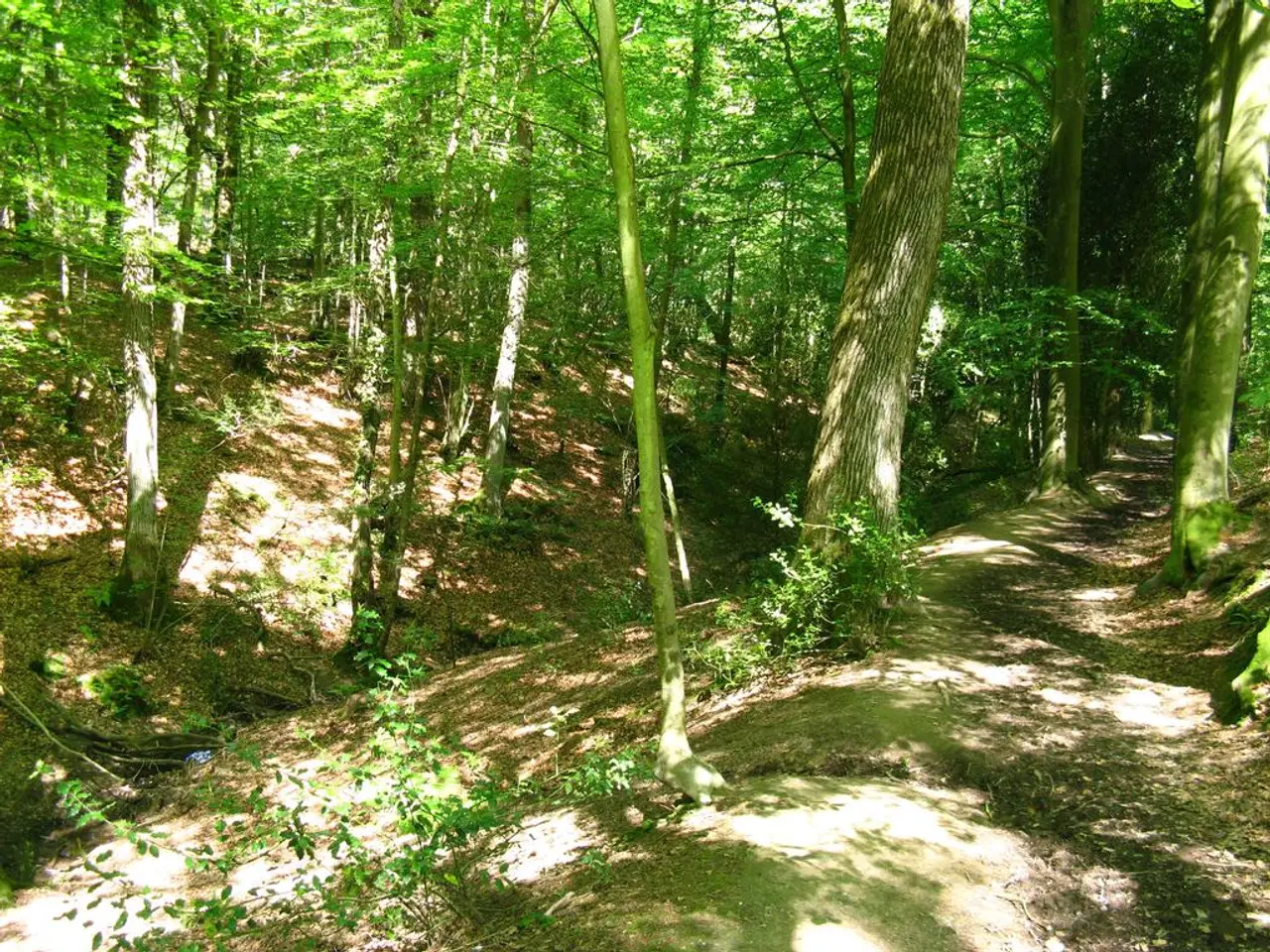Tranquil Vacation Fad: A Comprehensive Nature Immersion That Amplifies Mental Wellbeing
In today's fast-paced world, taking a break to reconnect with nature can have profound effects on our mental and physical health. Here's a look at forest bathing, a practice that offers stress relief, immune system boosts, and more.
Forest bathing, also known as shinrin-yoku, involves immersing oneself mindfully in a forest setting, engaging all the senses to foster a deep connection with nature. Key benefits of this practice include stress reduction, improved immune function, cardiovascular improvements, cognitive and emotional health enhancements, and better mood regulation [1][2][3][5].
To practice forest bathing effectively, choose a natural, forested area away from urban noise. Engage all your senses, paying mindful attention to sights, sounds, smells, textures, and even tastes in the environment. Slow down and move gently, taking slow walks or sitting quietly to fully experience the surroundings. You can also try guided sessions for deeper sensory engagement, or practice regularly for repeated benefits [1][3][5].
Forest bathing emphasizes a meditative and receptive approach, allowing individuals to relax and rejuvenate naturally through connection with the forest [3]. Prolonged separation from natural spaces can lead to a condition known as Nature Deprivation Disorder, linked to anxiety, depression, and behavioral issues [6].
Trees release an organic compound called phytoncides into the air, which may have a calming effect. This practice originated in Japan in the 1980s as a response to the condition of "karoshi" or "death by overworking" [7]. The concept of forest bathing has since spread throughout the world, and is now considered a popular form of preventative care [8].
While forest bathing is often associated with forests, the term "nature therapy" can be used synonymously for any quiet, natural setting. Regular visits to natural spaces appear to improve memory and other mental functions [9]. Forest bathing requires no special knowledge or effort, just a state of mind.
Many participants report overall mood enhancements from forest bathing. The practice has attracted the attention of scientists and health care workers, with researchers taking increasing interest in its health benefits [4]. If you're looking for a way to boost your mental and physical well-being, consider giving forest bathing a try.
References:
- The Guardian
- Harvard Health Publishing
- The New York Times
- National Geographic
- Mayo Clinic
- The Atlantic
- CNN
- The Washington Post
- Science Daily
- To complement your mental and physical health journey, you might find guidebooks on 'lifestyle' and 'health-and-wellness' valuable, which could include information on practices such as forest bathing.
- As you delve deeper into the science behind nature therapy, explore scholarly articles on subjects like 'mental-health' and 'science' for a better understanding of the cognitive and emotional benefits associated with practices like forest bathing.
- If you are passionate about outdoor living and wish to combine it with sustainable living practices, home-and-garden publications can offer insights on creating nature-inspired spaces that foster mental tranquility, effectively extending the benefits of forest bathing to your own backyard.




